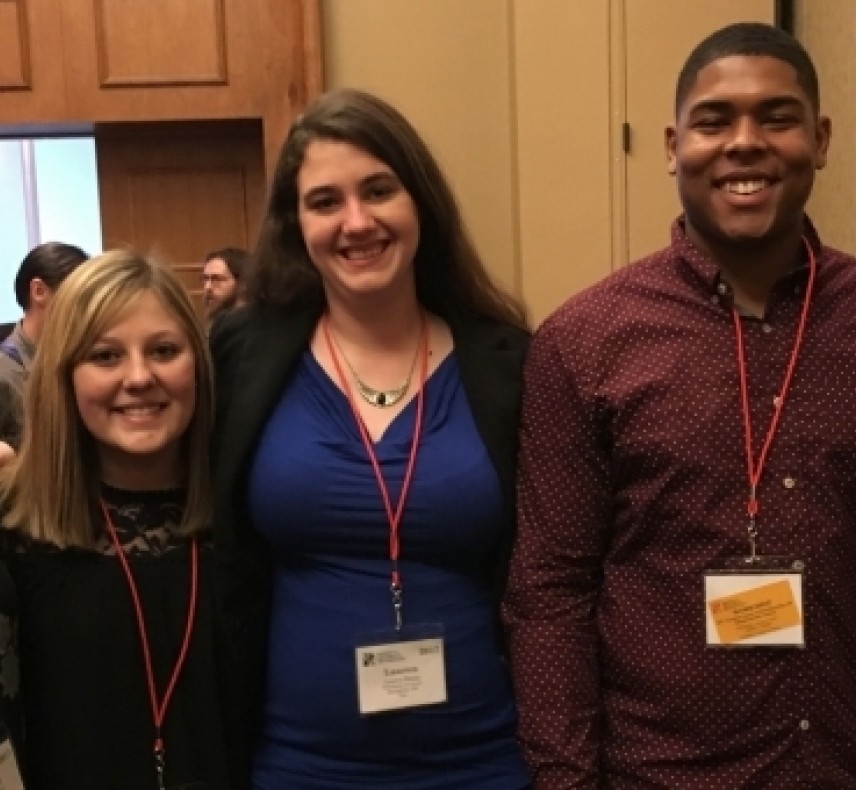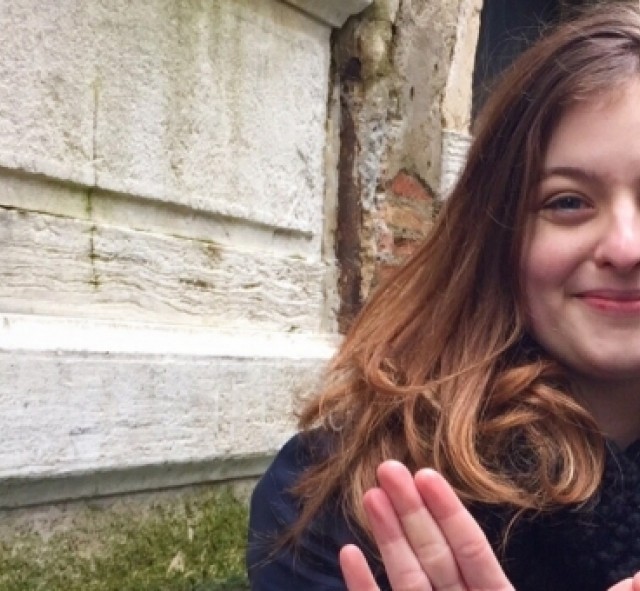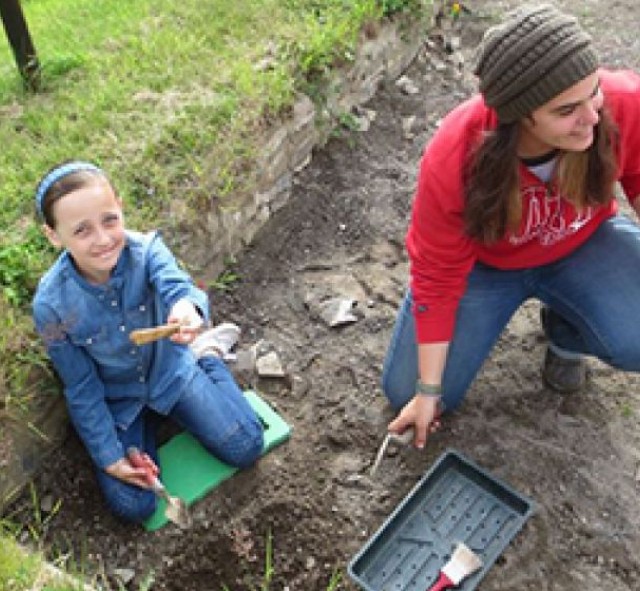How about those undergraduates from Wittenberg? That was the talk at the recent 50th annual meeting of the Society for Historical Archaeology (SHA) in Fort Worth, Texas, after Wittenberg students spontaneously entered the society's 4th annual Ethics Bowl competition.
A friendly competition that provides conference attendees with an opportunity to think and talk about applying professional ethics to real-life experiences as practicing archaeologists, the Ethics Bowl is apparently a tradition at the conference.
"All teams prepare in advance and have the topics to assist in preparation," said Professor of History and Department Chair Darlene Brooks Hedstrom, who is also the director of the archaeology program. "What made our students so remarkable beyond being willing to participate as undergraduates is that they didn't know about this part of the program until we arrived in Texas. They also did not know the topics in advance. I also had no idea about this component, as I was new to attending SHA along with them. So, they held their own and were confident enough to participate."
Students who participated in the Ethics Bowl included Dorian Hunter, class of 2019 from Springfield, Ohio, who is a business major and an archaeology and history minor; Abbey Fraker, class of 2019 from Westerville, Ohio, who is a history major and archaeology minor; Katelyn Shanor, class of 2017 and a sixth-generation Wittenberg student from Roswell, N.M., who is a biology major and archaeology minor; and Lauren Ehlers, class of 2020 from Caudon, Ill., who is a history major and archaeology minor. A fifth Wittenberg student, Lindsey Lightner, class of 2020 from West Jefferson, Ohio, who is a political science major with minors in history and archaeology, was a participant in a round table titled Acting Locally: Archaeology in Policy and Planning with local government officials interested in cultural heritage and local history.
The students entered the debate against graduate students, discussing historic preservation, ethics in history and archaeology, as well as questions about "who owns the past." The result: a superior performance. In fact, the Wittenberg students performed so well that a final round was added to the competition with the group taking second place.
"The room was so impressed by our students and their training in my archaeology class that deals specifically with the history of preservation and heritage that the SHA executive committee elected to award them $250 to acknowledge their success; the first prize team wins $750," Brooks Hedstrom said. "Throughout the rest of the conference, I received emails and texts from faculty at the conference talking about 'those Wittenberg students' and 'how great they were!'"
Committee members not only awarded the money, but also wrote letters to interim Wittenberg President Dick Helton and interim Provost Mary Jo Zembar. One letter in particular came from Mark Warner, president-elect of the SHA, who helped organize the Ethics Bowl.







